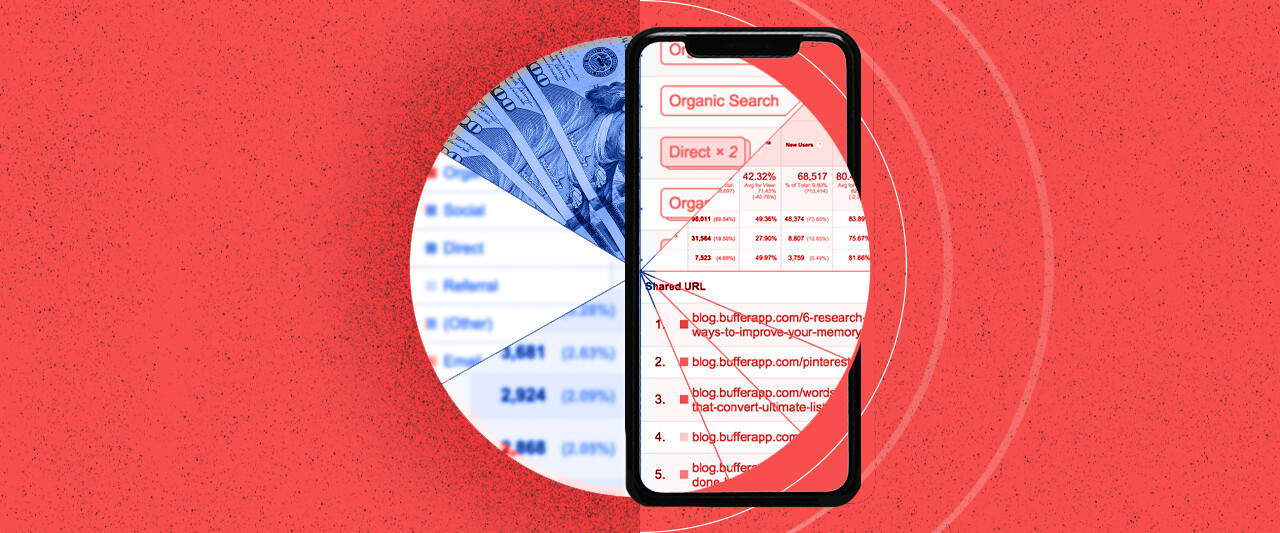Okay, so you and your team have decided to test some paid media campaigns to increase your brand’s awareness, generate some quality leads for the business, or both.
But no one on your team knows how to build these campaigns, so you begin the search for a media vendor to help execute your media buys. If you’ve worked with a digital marketing agency before, you get the deal. But if you haven’t, it can be a complicated process with lots of unknowns.
There’s a ton of questions the agency is going to ask during their onboarding process, there are pay-per-click keyword builds and ad copy creation that will need your approval, and decisions will need to be made about your budget, modifications, and more.
Knowing which questions to ask and the answers you should expect to hear will help you make the right decision — and since this is a choice with significant financial ramifications — you’ll want to get it right.
With that in mind, we’ve created this list of top questions you should ask when vetting your media-buying partner.
Question 1: What is the strategy & thought process that goes into your paid media team’s plan?
What You Want to Hear: Your agency should be able to articulate the strategy behind the media plan they have proposed. This may include identifying the target audience, understanding their behaviors and habits, and determining the best channels and tactics to reach them based on your goals and your budget.
When vetting an agency, they might not be at the point to produce a go-to-market strategy without them doing more research, but getting an understanding of their approach and thought process can provide valuable insights into the potential working relationship.
Therefore, we suggest asking probing questions about the tools they use to conduct research. For example, our agency uses tools like Ahrefs and SEMRush when doing keyword research and we use SimilarWeb for competitor research.
We’d also suggest asking specific questions like how long does their research typically take and if they’d present their go-to-market for approval. If the agency does not have a strong response for turnaround times and if they’d present it for your approval, then that can be a red flag. You want transparency from your partners and to be included in any media that is going to be live in the marketplace.
Question 2: How will you measure success?
What You Want to Hear: Measuring the success of paid media campaigns is crucial to understanding your ROI and your agency partner should have a plan in place for reporting on campaign performance.
This should include reporting tools they will use, the cadence of reporting delivery and the specific KPIs they’d measure (clicks, impressions, leads, cost per lead, cost per click, etc). By the end of these discussions, you should understand what metrics will be tracked and what success looks like from campaigns.
Whenever your finance department starts asking questions like what return are we getting from investing into our media buys, you better partner with an agency that can provide this level of reporting and help navigate those discussions.
If they’re asking questions about plugging into your CRM for real time lead data, or laying out a plan of how they will track your form fills, calls, or ecommerce purchase transactions, you’re likely in the right conversation.
For some context, we typically use Looker Studio for reporting and connect our leads to our clients CRMs. This allows us to get real-time data for our campaigns and allows our clients to measure ROAS in real-time so there’s never any questions around how we’re managing our client’s media spend.
Here’s an example of a Looker Studio data report.
Read: Why We Use Google’s HEART Framework
Question 3: How will you allocate our budget across channels?
What You Want to Hear: Knowing how your budget is being allocated across different channels is essential to ensuring that your campaign is optimized for maximum results. Your agency partner should be able to explain how they arrived at the proposed budget allocation and why they believe it will be effective.
The agency should also be able to describe the specific channels they’re using so you know how many ad dollars are going to be allocated towards Facebook Ads or any ad platform.
Question 4: How will you ensure brand safety?
What You Want to Hear: Brand safety is a top concern for many advertisers, and it’s important to know how your agency partner is addressing this issue (if at all). They should be able to explain their approach to ensuring that your ads are placed in brand-safe environments.
For example, if you’re partnering with an agency that is going to be running programmatic or display campaigns, that agency should describe the guardrails in place to prevent your ads from appearing on sensitive websites such as sexually suggestive content, political or religious content.
The last thing you want to see is your brand appearing next to something that your brand does not represent and therefore damages your reputation with your loyal customers.
Read: What K-Pop Teaches Us About UX and Marketing
Question 5: How will you manage and optimize campaigns over time?
What You Want to Hear: Optimizing a campaign over time is critical to ensuring that you’re getting the most value from your media spend and avoiding wasted spend.
Your agency partner should be able to explain how they will monitor and adjust campaigns based on performance data to improve results.
This may include them passing along documentation of their management process or providing insight into what they’re doing on a daily, weekly and monthly basis. The key here is that the agency refers to using data to make their decisions and they will be transparent in allowing your team to approve the media that will be live in the marketplace.
Additionally, it’s also important to consider aligning on the approval process for making optimization decisions. For example, the agency partner might want to add keywords to your search campaigns or add new audiences to Facebook ad campaigns to improve performance. Well, understanding if that needs approval or not is really important.
Why is the approval process important? Because this lays the foundation for how your brand reputation within paid campaigns will be managed. For example, you may be comfortable with allowing the agency to add new keywords, but are you comfortable allowing them to add new headline copy to your ads without your approval? And what if they place copy in ads that doesn’t align with your brand?
Getting an understanding of how agencies go through their approval process with clients they partner with is important for the success of the project, but also to get a better understanding of how transparent that potential vendor might be. And if they’re not willing to state their approval process or what they’d let you see, this would be a major red flag.
Question 6: What are the reporting & communication expectations?
What You Want to Hear: Communication and reporting are essential to ensuring that everyone is on the same page and that the campaign is meeting expectations. Your agency partner should be able to explain how they will communicate with you throughout the campaign and what reporting you can expect, including frequency and level of detail.
And you want to know that you’ll be provided clear reporting on a regular basis, including:
- A written analysis on at least on a monthly basis that includes explanations of the results and any context around campaign performance.
- Additional recommendations they may have to improve performance.
- A live reporting link to a dashboard so both teams have access to lead volume and spend, in real-time.
Exactly how this information will be provided should be clear up front, too, including the expected communication platform (our team utilizes Monday.com and Slack for daily communication and delivery of documents), as well as call/meeting schedules and meeting minutes.
Read: The Google Ads Shift to Data-Driven Conversion Attribution, Explained
Question 7: Will I own the ad accounts if our relationship were to end?
What You Want to Hear: A critical component of paid media is utilizing historical data to adjust your future ad campaign strategy. And unfortunately, in our industry, we do see media vendors building ad accounts and when the relationship ends with their client they then keep those ad accounts—all of which have golden historical data—that the client loses.
We’d recommend only partnering with agencies that allow your team to own the accounts and have real-time access to them.
Here at Electric Kite, all of our clients own the ad accounts we manage on their behalf and they can access these ad accounts whenever they want. This is something that builds trust in teams and we highly recommend demanding a clear answer on the ownership of ad accounts before starting an engagement.
In summary, working with a media vendor can be awesome and lead to success for your business, or can turn into a nightmare. We hope by asking the above questions you and your team will be able to navigate the vetting process with ease.
If you and your team have any questions or interest in discussing our media approach, please reach out!




